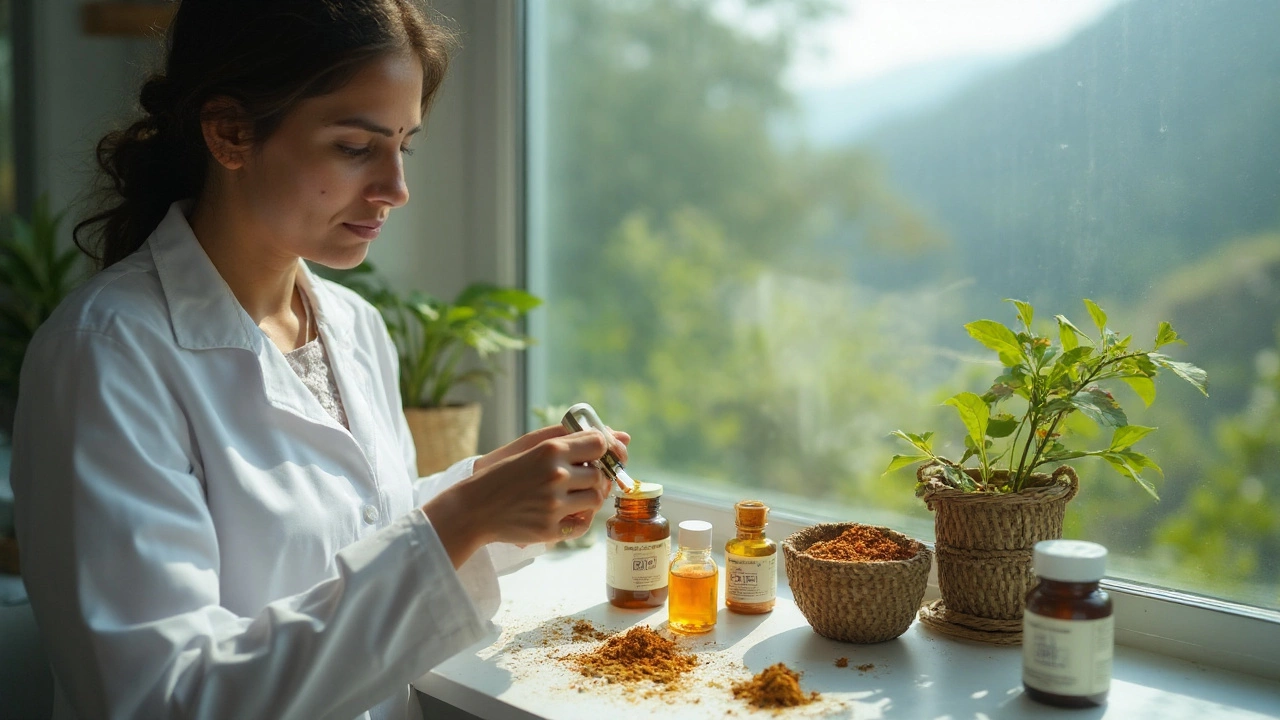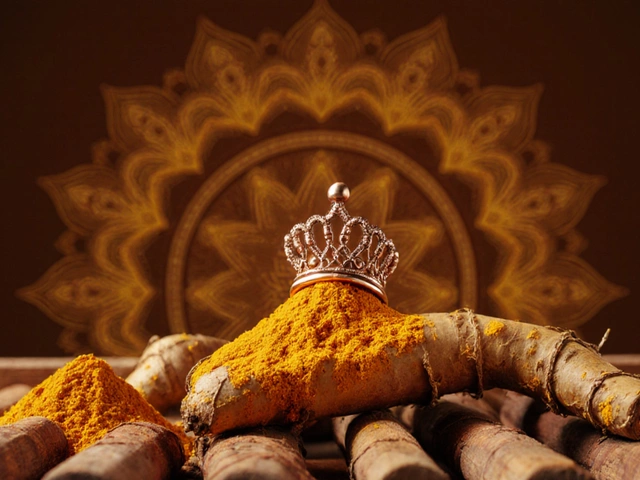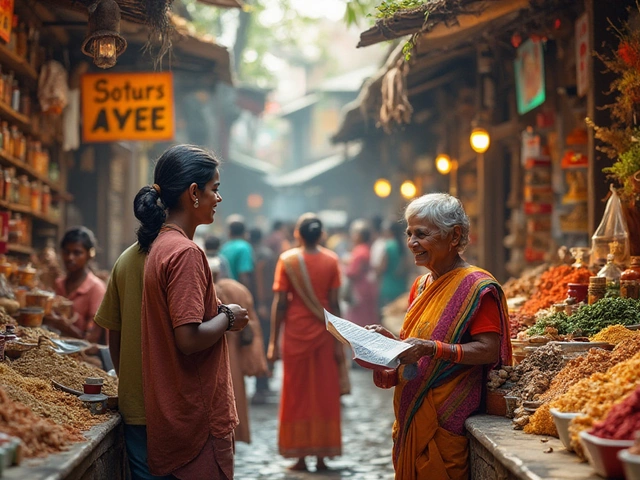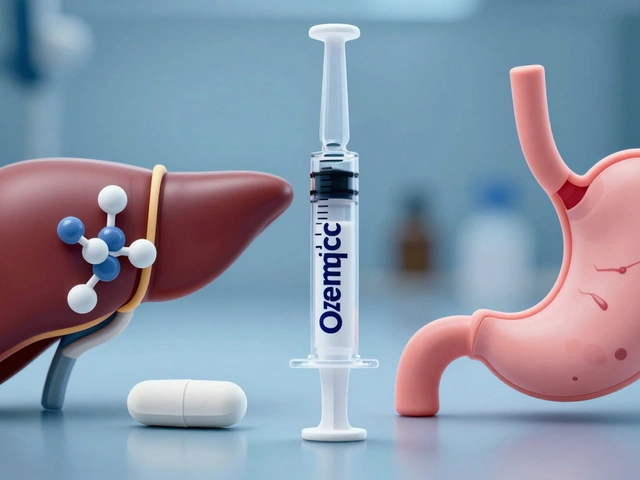You want a straight answer to a messy question: what’s the best herbal supplement company right now? Here’s the deal-there isn’t one single champion for everyone. The “best” depends on what you value: independent testing, clinical evidence, organic sourcing, price per dose, or India-first Ayurveda. I’ll give you a clear way to judge any brand in under a minute, a practical shortlist by use-case, a head-to-head comparison, and a buyer’s checklist that keeps you out of trouble.
- TL;DR: No universal winner. Pick by third-party testing (USP, NSF), transparency (batch COAs), standardization (e.g., 5% withanolides), and price per effective dose.
- Quick picks (2025): Thorne (athletes/NSF), Pure Encapsulations (clean formulas), Gaia Herbs (traceability/organic), NOW Foods (budget testing), Nature’s Way (TRU-ID), Himalaya Wellness (Ayurveda + clinicals), Organic India (regenerative/organic), Life Extension (research-grade).
- India context: Look for FSSAI-compliant labels, AYUSH GMP, NABL-tested COAs on request, and QR codes for batch traceability where available.
- Heuristic: Avoid proprietary blends, chase brands that publish COAs, and compare cost per mg of the standardized active-not per capsule.
- Safety: Herbs interact with meds; check NIH ODS fact sheets and WHO monographs, and talk to your clinician if you have conditions or take prescriptions.
How to judge the best herbal supplement company in 2025
The fastest way to answer “who’s the best herbal supplement company” is to flip the question: what proof do they offer that what’s on the label matches what’s in the bottle-free from contaminants-and that the dose aligns with human data? Use this checklist; it works in the US, Europe, and here in India.
- Independent verification: Prefer USP Verified or NSF Certified (especially NSF Certified for Sport if you’re an athlete). These programs test identity, strength, purity, and manufacturing practices. In India, check for FSSAI-compliant labels for nutraceuticals, AYUSH GMP for classical Ayurvedic products, and NABL-accredited lab reports.
- COA transparency: Best-in-class brands post batch-specific Certificates of Analysis (COAs) or share them on request. A good COA shows identity testing, potency of the standardized active, and screens for heavy metals, pesticides, microbes, and adulterants.
- Standardization that matches evidence: Herb quality equals dose of active compounds. Practical benchmarks many clinicians use: ashwagandha (withanolides 5% or withanolide glycosides ~35%), bacopa (bacosides 20%), turmeric extract (curcuminoids 95% or bioavailable complexes), ginkgo (flavone glycosides 24% / terpene lactones 6%). Brands should disclose standardization on the label or COA.
- Clinical backing: Look for formulas built on human trials, not just folklore. Some branded extracts with published data include KSM-66 and Sensoril (ashwagandha), Curcumin C3 Complex and Meriva/BCM-95 (curcumin), Echinaforce (echinacea), Shoden (ashwagandha), and Suntheanine (l-theanine). Reputable companies either use such extracts or match their specs.
- Manufacturing rigor: cGMP compliance (US FDA 21 CFR 111), ISO 17025 labs for testing, supplier audits, and validated methods (pharmacopeial like USP/EP). Many good brands state “tested to USP standards” even if not USP Verified.
- Sourcing and identity: Traceable supply chains reduce adulteration. DNA or HPTLC identity testing helps prevent substitutions. Organic and regenerative farming cut pesticide exposure; choose organic when you’ll take an herb daily for months.
- Label honesty: Skip “proprietary blends.” You want exact milligrams per herb and per active. Also watch for megadoses unsupported by monographs from WHO/ESCOP/Commission E or NIH ODS fact sheets.
- Price per effective dose: Do the math. Cost per day is meaningless unless you price the standardized active. Quick formula: (Price per bottle ÷ total mg of active in bottle) × your mg per day = your true daily cost.
- Customer support and recalls: Reliable brands answer ingredient questions, share COAs, and handle recalls transparently. A clean track record counts.
60-second decision tree: If you want athlete-safe, pick NSF Certified for Sport (e.g., Thorne). If you want India-first Ayurveda with clinicals, go Himalaya Wellness; if you want organic/regenerative, go Organic India or Pukka. If budget matters, NOW Foods or Nature’s Way. If you want farm-to-bottle traceability, Gaia Herbs. If you want minimalist hypoallergenic formulas, Pure Encapsulations.
The shortlist: best herbal supplement companies by use-case
These picks reflect 2025 quality markers, transparent testing, and product depth. I’m in Pune and see both India-first and global brands in the wild; I’ve leaned into options you can actually buy here or order online without drama.
- Thorne - Best for athletes and strict quality control
- Why: NSF Certified for Sport on many products, robust raw-material testing, and clean excipients. Often matches pharmacopeial specs.
- Best for: Performance, joint support, adaptogens where banned-substance risk matters.
- Not for: Tight budgets. Some herbal SKUs are pricier per mg active.
- Standouts: Curcumin Phytosome (Meriva), Boswellia/curcumin combos, well-built adaptogen blends with disclosed actives.
- Pure Encapsulations - Best for hypoallergenic, doctor-trusted basics
- Why: No unnecessary additives, rigorous sourcing, and consistent standardization. Widely used in clinical settings.
- Best for: Sensitive individuals, elimination-diet phases, clinically tidy single-herb dosing.
- Not for: Story-driven sourcing or farm traceability; it’s more lab-driven.
- Standouts: Ginkgo (24/6), standardized ashwagandha, boswellia with AKBA-focused extracts.
- Gaia Herbs - Best for farm-to-bottle transparency
- Why: “MeetYourHerbs” traceability portal, organic-focused fields, and detailed batch test data.
- Best for: Consumers who want to see origin, harvest, and test results by lot.
- Not for: Those who need maximum mg-per-rupee potency; you pay for traceability.
- Standouts: Turmeric Supreme line (bioavailability-backed), adaptogen blends, echinacea with identity testing.
- NOW Foods - Best budget pick with real lab muscle
- Why: Huge in-house ISO 17025 labs, frequent third-party checks, aggressive recalls when needed, and fair prices.
- Best for: Wallet-friendly staples where you still want heavy metals and potency tested.
- Not for: Romantic brand stories. Presentation is basic; potency is the point.
- Standouts: Standardized ashwagandha, ginkgo, milk thistle; often uses branded extracts when it matters.
- Nature’s Way - Best for identity assurance via TRU-ID
- Why: DNA-verified botanicals (TRU-ID) across many SKUs, clear standardization, and accessible pricing.
- Best for: Folks worried about adulteration and species mix-ups.
- Not for: The most premium organics; they balance cost and quality.
- Standouts: Turmeric, valerian, echinacea-clean labeling with verified identity.
- Himalaya Wellness - Best India-first Ayurveda backed by clinicals
- Why: AYUSH GMP, global GMP sites, and published human studies on flagship herbs like ashwagandha, bacopa, and gokshura.
- Best for: Ayurvedic herbs with standardization and accessible pricing in India and abroad.
- Not for: Those who demand USDA Organic on every SKU; many are conventional but well-tested.
- Standouts: Ashwagandha (with withanolide standardization), Liv.52 heritage, bacopa with clinical backing.
- Organic India - Best for organic/regenerative sourcing
- Why: Certified organic, regenerative agriculture, and fair partnerships with farmers in India. Clean labels.
- Best for: Long-term daily herbs (tulsi, ashwagandha) where pesticide reduction matters.
- Not for: Maximum potency per capsule. Organic often trades some concentration for purity.
- Standouts: Tulsi (holy basil), ashwagandha, moringa-great for daily wellness routines.
- Life Extension - Best for research-forward doses and combos
- Why: Deep references to human data, uses branded extracts, and publishes rationales for doses.
- Best for: People who want the study-aligned dose without DIY label math.
- Not for: Super-simple labels; you’ll get evidence blurbs and complex formulas.
- Standouts: Curcumin with bioavailability tech, artichoke/berberine combos with clear standardization.
- Pukka Herbs - Best UK-style organic blends with provenance
- Why: Certified organic herbs, fair sourcing, and gentle blends. Widely available in Europe and India via importers.
- Best for: Organic-first buyers who like traditional recipes with modern testing.
- Not for: High-potency single-herb therapeutics; blends are the star.
- Standouts: Turmeric capsules, triphala, and adaptogenic teas as a daily base.
- Jarrow Formulas - Best value for branded extracts and smart science
- Why: Good balance of cost and research-grade ingredients; often uses named extracts with clinical data.
- Best for: Budget-conscious buyers who still want Meriva, KSM-66/Sensoril, or C3-style extracts.
- Not for: Full organic/regenerative stories.
- Standouts: Curcumin complexes, standardized ginkgo, milk thistle.
These companies hit the marks on testing, standardization, and transparency in ways that hold up whether you’re shopping in Pune, Mumbai, Delhi, or ordering from the US/EU.

Head-to-head comparison and real-world scenarios
If you’re torn between a few names, this side-by-side snapshot helps. Price tiers are relative within the herb category, not exact rupees, since doses vary a lot by standardization.
| Brand | Key certifications/testing | COA access | Strengths | Best for | Not for | Price tier |
|---|---|---|---|---|---|---|
| Thorne | NSF Certified for Sport (many); GMP; extensive in-house + third-party | On request; detailed specs | Clean formulas; athlete-safe; uses branded extracts | Performance, strict QA | Lowest cost seekers | High |
| Pure Encapsulations | NSF-GMP; pharmacopeial methods | On request | Hypoallergenic; precise standardization | Sensitive users | Story-driven sourcing | High |
| Gaia Herbs | Organic focus; identity testing; farm traceability | Public batch lookup | Origin and batch transparency | Traceability fans | Max potency per rupee | Mid-High |
| NOW Foods | ISO 17025 labs; frequent 3rd-party checks | On request; strong QC comms | Value + testing depth | Budget quality | Premium organic niche | Low |
| Nature’s Way | TRU-ID (DNA) identity; GMP | On request | Adulteration guardrails | First-time buyers | Maximal potency lines | Low-Mid |
| Himalaya Wellness | AYUSH GMP; global GMP; clinicals | On request; India support | Ayurveda + human data | India-first herbs | All-organic demand | Low-Mid |
| Organic India | Certified Organic; regenerative | On request | Clean sourcing; daily-use safety | Organic routines | Highest mg per cap | Mid |
| Life Extension | GMP; study-aligned dosing | On request | Research-forward formulas | Evidence-first shoppers | Simple labels | Mid-High |
Common scenarios with simple picks and the trade-offs to accept:
- “I’m an athlete; zero tolerance for banned substances.” Choose an NSF Certified for Sport brand like Thorne for herbal blends and joint support. Trade-off: higher price per dose.
- “I want ashwagandha that actually works.” Look for 5% withanolides or named extracts like KSM-66 or Sensoril at study-aligned doses (often 300-600 mg/day for KSM-66). Brands that disclose these clearly include Jarrow, NOW Foods, Himalaya (own standardized extract), and Pure Encapsulations. Trade-off: branded extracts cost more but remove guesswork.
- “Turmeric for joints, but I’m on a budget.” Pick standardized 95% curcuminoids and pair with black pepper extract (piperine) or choose a budget-friendly bioavailable complex. NOW Foods and Nature’s Way hit value; Life Extension or Thorne if you want named tech like Meriva/BCM-95. Trade-off: cheaper products may need higher doses for effect.
- “Organic or nothing.” Choose Organic India or Pukka Herbs. Trade-off: you may get less concentration per capsule; dose accordingly.
- “Sensitive stomach, minimal excipients.” Pure Encapsulations or Thorne single-herb capsules. Trade-off: pay a premium for cleaner capsules and tighter allergen control.
- “Buying in India; want easy access.” Himalaya Wellness and Organic India are widely available, FSSAI-compliant, and supported locally. Trade-off: some SKUs are conventional (non-organic) but remain well-tested.
About evidence and safety: USP and NSF outline common supplement quality failures (mislabeling, contaminants). WHO’s “Monographs on Selected Medicinal Plants” and NIH’s Office of Dietary Supplements fact sheets describe dose ranges, interactions, and safety profiles. In India, FSSAI regulations define how nutraceuticals must be labeled and manufactured; AYUSH GMP sets quality for classical Ayurvedic products. When brands line up with these references, risk goes down and your chance of getting the result you want goes up.
Buyer’s checklist, pitfalls, mini‑FAQ, and next steps
Use this section when you’re on the product page with your card in hand. It’s the last filter before you click “Buy”.
- 5-point buyer’s checklist
- Find a batch COA or confirm the brand will share it. Must show identity, potency, and contaminant screens.
- Check standardization on the label: e.g., ashwagandha 5% withanolides, bacopa 20% bacosides, turmeric 95% curcuminoids or a named complex.
- Scan certifications: USP Verified or NSF (ideally NSF for Sport if relevant). In India, ensure FSSAI-compliant labeling; for classical formulas, look for AYUSH GMP.
- Do the price math: Price per mg of active × your daily mg = true daily cost. Compare across brands.
- Read the excipients: avoid unnecessary colors/sweeteners if you’re sensitive; prefer vegetarian capsules if that matters to you.
- Common pitfalls
- Proprietary blends that hide dosages-skip them.
- Unrealistic claims (rapid “cures”)-a red flag in every market.
- Amazon-only fly-by-night labels with no website or support-hard pass.
- No standardization listed for herbs where it’s expected-move on.
- Imported but not labeled to local rules (e.g., missing FSSAI)-returns and customs headaches.
Mini‑FAQ
- Is there a single best herbal supplement company? No. Brands excel in different lanes: athlete safety (Thorne), traceability (Gaia), budget testing (NOW Foods), clean hypoallergenic (Pure Encapsulations), Ayurveda with clinicals (Himalaya), organic/regenerative (Organic India).
- Which certifications actually matter? USP Verified and NSF Certified (especially NSF for Sport) signal strong third‑party oversight. TRU‑ID helps ensure the plant is the right species. In India, look for FSSAI-compliant labels and AYUSH GMP for classical products.
- Are Indian herbal supplements safe? Reputable brands that follow FSSAI/AYUSH GMP and provide lab data are safe for most people. Avoid anonymous sellers and metal-heavy traditional preparations unless prescribed and monitored; stick with standardized, tested products.
- Do I need organic? For long-term daily herbs (tulsi, moringa), organic helps cut pesticide exposure. For short courses or high-standardization extracts, testing and COA transparency may matter more than organic status.
- How long should I trial an herb? Many adaptogens take 4-8 weeks. Acute immune herbs (like echinacea) are for short windows at onset. Always check NIH ODS and WHO monographs for safety and interactions.
- Can herbs interact with medications? Yes. Examples: St. John’s wort with SSRIs and many drugs; ginkgo with anticoagulants; ashwagandha with thyroid meds and sedatives; turmeric at high doses with anticoagulants. If you’re on prescriptions, loop in your clinician.
- Can I trust online reviews? Use them as soft signals only. Prioritize COAs, certifications, and standardization over star ratings.
Next steps
- If you want the safest athlete choice: Filter by NSF Certified for Sport → shortlist Thorne → pick the herb with disclosed standardization → request COA if not posted.
- If you want India-first, easy to find: Compare Himalaya vs Organic India for your herb → check standardization and whether you want organic → confirm FSSAI labeling and batch details.
- If you want budget without cutting corners: Compare NOW Foods and Nature’s Way on mg active per rupee → pick the one with clearer COA access → avoid proprietary blends.
- If you’re sensitive to additives: Start with Pure Encapsulations single-herb capsules → confirm excipients are minimal → begin at the low end of the studied dose and titrate.
- If sustainability matters most: Choose organic/regenerative (Organic India, Pukka, Gaia) → accept higher cost or lower mg per cap → set dose to match studied actives.
Troubleshooting
- No effect after a month: Re-check standardization and dose against NIH ODS/WHO references; raise dose within safe ranges or switch to a branded extract with better bioavailability.
- Stomach upset: Take with food, split the dose, or switch to a different extract form (e.g., curcumin phytosome). Consider a hypoallergenic brand.
- Sleepiness from adaptogens: Shift dosing earlier, reduce dose, or switch extract (e.g., Sensoril can feel stronger than KSM-66 for some users).
- Concerns about heavy metals: Ask for COA showing Pb, As, Cd, Hg below pharmacopeial limits; choose brands that test every batch and source clean soils.
- International ordering hassles: Prefer brands with local distribution and proper local labeling (e.g., Himalaya/Organic India in India; Gaia/Nature’s Way via official importers).
Bottom line: you don’t need the “best company” in the abstract-you need the one that proves quality for your herb, your dose, and your budget. Use the checklist, apply the price-per-active formula, and favor firms that publish hard data. That’s how you win in 2025.





